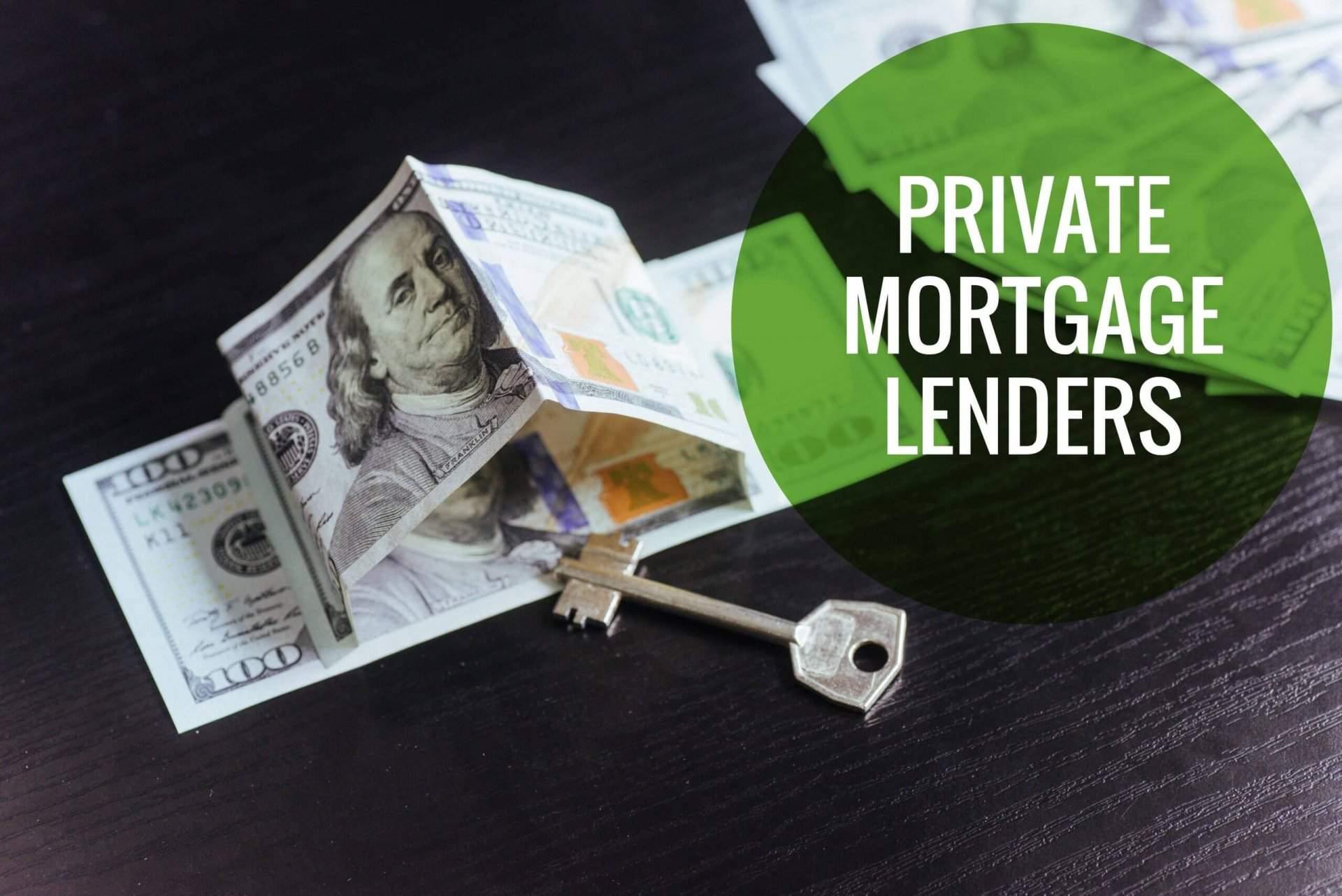Comparing Traditional Banks vs. private mortgage lenders savannah ga: Which Is Better?
Checking Out Mortgage Lending: Essential Details for Making Enlightened Choices
In today's real estate market, comprehending mortgage lending is important for prospective customers. Various mortgage types, such as fixed-rate and adjustable-rate, offer distinctive advantages and difficulties. Rates of interest, funding application procedures, and closing prices also play substantial duties in forming the home-buying experience. With a lot of aspects to assess, traversing this landscape can seem daunting. There are methods to streamline the process and make educated decisions.
Understanding Different Kinds Of Home Mortgages
What are the different types of mortgages offered to property buyers? Homebuyers can pick from several mortgage alternatives to fit their monetary scenarios and goals. Fixed-rate home mortgages are prominent for their stability, supplying a regular rate of interest and month-to-month repayment throughout the finance term. On the other hand, adjustable-rate mortgages (ARMs) begin with a reduced rates of interest that might vary after an initial period, potentially increasing overall expenses. One more choice is the FHA funding, made for low-to-moderate-income buyers, which calls for a lower deposit and has a lot more lax credit report requirements. VA fundings, offered to veterans and active military participants, supply beneficial terms without any deposit and affordable prices. Additionally, USDA fundings sustain rural property buyers with low-to-moderate revenues, supplying 100% funding in assigned areas. Comprehending these mortgage kinds allows homebuyers to make informed choices based on their unique economic circumstances.
The Relevance of Rates Of Interest
Rate of interest rates play an important function in the mortgage lending landscape, exceptionally influencing the price of homeownership. A lower rates of interest can considerably decrease monthly mortgage settlements, making it much easier for borrowers to manage their finances. On the other hand, greater rates can cause raised costs over the life of the lending, possibly pressing homeownership out of reach for numerous individuals.Additionally, rates of interest are frequently connected to wider economic indications, such as rising cost of living and employment prices, which can change based on market conditions. This partnership implies that prospective homeowners need to stay notified about existing rate fads to make informed decisions.Moreover, the kind of mortgage selected can also influence how rates of interest are applied, with fixed-rate mortgages supplying security and variable-rate mortgages introducing potential irregularity. Understanding these characteristics is necessary for debtors looking to browse the intricacies of mortgage lending properly.
The Mortgage Application Process
Steering via the mortgage application procedure can appear frightening for numerous prospective homeowners. The journey usually starts with collecting essential documentation, such as income statements, income tax return, and credit report background. Lenders evaluate this info to examine the candidate's economic security and creditworthiness.Once the documents is accumulated, people send an official application, where they information individual and economic information. This stage is vital, as it permits lending institutions to figure out car loan qualification and terms. Following the entry, underwriting occurs, during which lending institutions conduct a detailed evaluation of the application and supporting documents.After underwriting, the loan provider may request added details or clarification. If authorized, the applicant gets a funding offer, which outlines the mortgage terms. Lastly, upon acceptance, shutting treatments begin, bring about the completion of the car loan and the purchase of the residential property. Understanding this process can empower potential home owners to navigate it with greater self-confidence.
Trick Terms Every Buyer Need To Know
Steering the world of mortgage lending needs knowledge with different key terms that can greatly affect the homebuying experience. Comprehending these terms aids purchasers browse their choices and make enlightened decisions.One essential term is "major," which describes the initial quantity borrowed. Closely associated is "passion," the fee charged by loan providers for obtaining money, usually shared as an annual percentage rate (APR) "Escrow" is an additional substantial idea, where funds are held by a 3rd event to cover property taxes and insurance.Buyers need to also recognize "deposit," the upfront quantity paid towards the home purchase, and "equity," the difference in between the home's market price and the remaining mortgage balance. "pre-approval" indicates that a lender has assessed a buyer's economic scenario and identified just how much they can obtain, improving the buying process. Familiarity with these terms equips homebuyers in their trip.
Tips for Improving Your Credit History
Improving one's credit rating is crucial for safeguarding beneficial mortgage terms. Key activities include paying bills on schedule, decreasing credit report use, and inspecting credit report records regularly - Private Mortgage Lenders Savannah GA. These actions can substantially enhance an individual's financial profile and raise their chances of obtaining a home mortgage

Pay Bills On Time
Paying costs on schedule stands as one of one of the most efficient approaches for improving a credit report. Timely settlements demonstrate monetary responsibility and integrity to loan providers, greatly influencing credit history assessments. Late settlements can lead to negative marks on credit scores records, which might stay for a number of years, negatively impacting loaning abilities. Establishing a regular routine for costs payments can aid keep preparation; utilizing suggestions or automatic payments is an efficient technique. In addition, people should prioritize necessary costs, such as debt cards, energies, and home mortgages, to guard their credit reliability. Consistently keeping track of credit rating records can additionally help catch any type of discrepancies or missed out on settlements, permitting for punctual activity. Ultimately, consistent bill repayment is essential for promoting a strong debt profile.
Minimize Credit Rating Use
Decreasing credit score use is a necessary step in enhancing one's credit history rating. Credit usage describes the ratio of credit report card equilibriums to their restrictions, and it significantly impacts credit history. Experts advise keeping an application price listed below 30%, ideally around 10%. To achieve this, people can pay down existing balances or enhance credit line, offered they do not increase investing. In addition, people ought to stay clear of shutting old debt accounts, as this can unintentionally raise utilization proportions by minimizing total offered debt. On a regular basis keeping track of costs practices and making regular settlements can further assist in handling debt utilization effectively. By carrying useful site out these approaches, people can enhance their credit history and enhance their qualification for favorable mortgage lending options.
Examine Credit Report News Consistently
While several might forget their credit rating records, regularly checking these documents is important for maintaining a healthy and balanced credit rating. Debt reports include crucial details concerning an individual's credit rating, consisting of repayment documents, arrearages, and credit history queries. By assessing these reports, consumers can recognize any kind of inaccuracies or fraudulent activities, which can adversely affect their ratings. It is advisable to check credit records at the very least every year, as this enables people to correct errors and take positive steps to improve their credit reliability. In addition, checking credit history records can offer insight right into variables influencing ball game, allowing people to make educated financial choices. Eventually, constant index watchfulness over debt reports promotes economic wellness and improves the chance of securing positive mortgage lending terms.
Navigating Closing Expenses and Costs
Recognizing closing costs and charges is important for any person entering the mortgage process. Each component, from loan provider fees to third-party costs, can greatly impact the overall expense of safeguarding a funding. By contrasting these prices and bargaining when possible, borrowers can better handle their economic dedications.
Understanding Closing Cost Parts
Handling the complexities of closing prices can be frightening for homebuyers. Closing costs are consisted of numerous parts, typically including loan source fees, evaluation costs, title insurance coverage, and inspection costs. These charges vary by lender and can vary based on the property location and finance type. In addition, property owners may run into pre paid expenses like residential property taxes and house owners insurance policy that are accumulated at closing (Private Mortgage Lenders Savannah GA). It is essential for buyers to understand these components to properly estimate the overall quantity needed during the deal. By breaking down each aspect, homebuyers can make enlightened monetary choices, ensuring they are well-prepared for the closing process and minimizing any type of surprises that may occur at the lasts of protecting their mortgage
Contrasting Lender Charges
When assessing mortgage alternatives, customers must meticulously contrast lender costs to guarantee they are making an informed choice. Lender charges can considerably impact the general price of a mortgage, including application charges, car loan source fees, and underwriting fees. Each lending institution may have different structures and quantities for these charges, which can bring about significant distinctions in total closing expenses. It is vital for debtors to ask for a Financing Quote from numerous lenders, as this record details all linked costs find this in a standardized format. By assessing these quotes, borrowers can recognize which loan provider uses one of the most affordable terms. Inevitably, a comprehensive comparison of loan provider charges will help borrowers pick the very best mortgage choice that lines up with their monetary objectives.
Negotiating Closing Expenses
Debtors frequently forget the prospective to bargain closing prices, which can better affect the affordability of a mortgage. Closing expenses typically consist of different costs such as appraisal, title insurance policy, and lawyer charges, which can build up considerably. Comprehending these costs is important, as they can range lenders. By acquiring thorough estimates, customers can determine locations for negotiation. It is a good idea to review charges straight with the lending institution, as some costs may be flexible. Furthermore, debtors can contrast deals from multiple loan providers to leverage much better terms. Engaging a property representative or a home loan broker can even more boost the arrangement process, guaranteeing that consumers secure one of the most beneficial closing prices and overall mortgage terms.

Regularly Asked Questions
What Records Are Needed for a Home Loan Application?
The present concern addresses the necessary paperwork for a home loan application. Commonly, candidates have to provide recognition, revenue confirmation, credit rating, asset statements, and details regarding the residential property to assure a thorough analysis by lending institutions.
Just how Does My Work History Affect Mortgage Authorization?
Employment background considerably influences mortgage approval, as loan providers assess job security and income uniformity. A solid, continual job document enhances creditworthiness, while constant job adjustments may increase problems regarding dependability and financial stability.
Can I Get a Mortgage With Pupil Fundings?
The person's capability to safeguard a home mortgage with trainee finances depends upon their overall debt-to-income proportion and credit report. Lenders assess these variables, identifying whether the candidate can handle additional financial obligations sensibly.
What Is the Difference Between Pre-Qualification and Pre-Approval?
The difference in between pre-qualification and pre-approval hinge on their deepness. Private Mortgage Lenders Savannah GA. Pre-qualification provides a basic price quote of obtaining potential based on self-reported info, while pre-approval involves an extensive financial evaluation and credit score check by the loan provider

How much time Does It Take to Close on a Home loan?
The time needed to shut on a home mortgage normally varies from 30 to 45 days. Variables such as lender efficiency, customer paperwork completeness, and property appraisal can influence this timeline significantly, creating variants in the closing procedure.